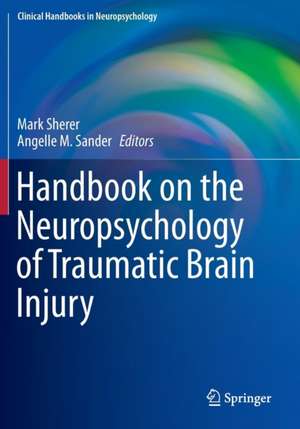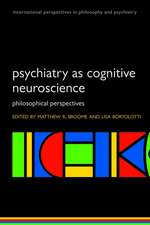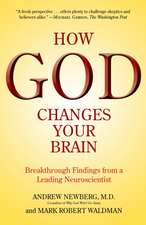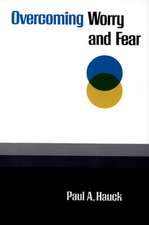Handbook on the Neuropsychology of Traumatic Brain Injury: Clinical Handbooks in Neuropsychology
Editat de Mark Sherer, Angelle M. Sanderen Limba Engleză Paperback – 11 aug 2015
- Bedside evaluations in TBI.
- Outcome assessment in TBI.
- Collaborating with family caregivers in the rehabilitation of persons with TBI.
- Behavioral assessment of acute neurobehavioral syndromes to inform treatment.
- Pediatric TBI: assessment, outcomes, intervention.
- Special issues with mild TBI in veterans and active duty service members.
| Toate formatele și edițiile | Preț | Express |
|---|---|---|
| Paperback (1) | 1391.83 lei 6-8 săpt. | |
| Springer – 11 aug 2015 | 1391.83 lei 6-8 săpt. | |
| Hardback (1) | 1394.17 lei 6-8 săpt. | |
| Springer – 17 mai 2014 | 1394.17 lei 6-8 săpt. |
Preț: 1391.83 lei
Preț vechi: 1697.36 lei
-18% Nou
Puncte Express: 2088
Preț estimativ în valută:
266.41€ • 289.48$ • 223.93£
266.41€ • 289.48$ • 223.93£
Carte tipărită la comandă
Livrare economică 21 aprilie-05 mai
Preluare comenzi: 021 569.72.76
Specificații
ISBN-13: 9781493932252
ISBN-10: 149393225X
Pagini: 436
Ilustrații: XIV, 420 p. 33 illus., 17 illus. in color.
Dimensiuni: 178 x 254 x 23 mm
Greutate: 0.75 kg
Ediția:1st ed. 2014
Editura: Springer
Colecția Springer
Seria Clinical Handbooks in Neuropsychology
Locul publicării:New York, NY, United States
ISBN-10: 149393225X
Pagini: 436
Ilustrații: XIV, 420 p. 33 illus., 17 illus. in color.
Dimensiuni: 178 x 254 x 23 mm
Greutate: 0.75 kg
Ediția:1st ed. 2014
Editura: Springer
Colecția Springer
Seria Clinical Handbooks in Neuropsychology
Locul publicării:New York, NY, United States
Public țintă
ResearchCuprins
Part 1:Introduction to Traumatic Brain Injury.- 1.Epidemiology and Societal Impact of Traumatic Brain Injury.- 2.Cognitive and Behavioral Outcomes from Traumatic Brain Injury.- Part 2:Assessment.- 3.Bedside Evaluations.- 4.Comprehensive Assessment.- 5.Outcome Assessment.- 6.Neuroimaging in Traumatic Brain Injury.- Part 3:Intervention.- 7.A Systematic and Evidence-Based Approach to Clinical Management of Patients with Disorders of Consciousness.- 8.Behavioral Assessment of Acute Neurobehavioral Syndromes to Inform Treatment.- 9.Rehabilitation of Memory Problems Associated with Traumatic Brain Injury.- 10.Rehabilitation of Attention and Executive Function Impairments.- 11.Social Communication Interventions.- 12.Impaired Self-awareness.- 13.Emotional Distress Following Traumatic Brain Injury.- 14.Treating and Collaborating With Family Caregivers in the Rehabilitation of Persons with Traumatic Brain Injury.- 15.Comprehensive Brain Injury Rehabilitation in Post-Hospital Treatment Settings.-Part 4:Special Issues.- 16Pediatric Traumatic Brain Injury: Outcome, Assessment, and Intervention.- 17.Assessment and Treatment of Older Adults with Traumatic Brain Injuries.- Part 5:Mild TBI.- 18.Mild Traumatic Brain Injury.- 19.Malingering in Mild Traumatic Brain Injury.- 20.Special Issues with Mild TBI in Veterans and Active Duty Service Members.
Recenzii
“The aim is to provide a handbook with practical, clinically useful information for the assessment and treatment of patients with TBI. The book is intended for clinical neuropsychologists, although anyone involved in neurorehabilitation may find it of interest.” (Christopher J. Graver, Doody’s Book Reviews, April, 2016)
“The aim of this book is to provide information about the latest cognitive and behavioral aspects of TBI and to guide clinicians in their response to and treatment of patients presenting with this problem. … Although the book is clearly for neuropsychologists, it also provides adequate reading material for a variety of disciplines involved in the assessment and treatment of patients with TBI, as well as students of those disciplines.” (Christopher J. Graver, Doody’s Book Reviews, October, 2014)
“The aim of this book is to provide information about the latest cognitive and behavioral aspects of TBI and to guide clinicians in their response to and treatment of patients presenting with this problem. … Although the book is clearly for neuropsychologists, it also provides adequate reading material for a variety of disciplines involved in the assessment and treatment of patients with TBI, as well as students of those disciplines.” (Christopher J. Graver, Doody’s Book Reviews, October, 2014)
Notă biografică
Dr. Mark Sherer is senior scientist, director of research, and director of neuropsychology at TIRR Memorial Hermann. He is clinical professor of physical medicine and rehabilitation at Baylor College of Medicine and the University of Texas Medical School at Houston. Dr. Sherer is a board certified neuropsychologist with over 25 years experience as a clinician, administrator and educator in brain injury rehabilitation. He is a fellow of the American Psychological Association, the National Academy of Neuropsychology, and the American Congress of Rehabilitation Medicine. Dr. Sherer has served as principal investigator for grants on TBI recovery, impaired self-awareness, telephone counseling for persons with TBI, TBI community integration, and rehabilitation of brain tumor patients and currently serves as the principal investigator for the Texas TBI Model System of TIRR grant. He has published more than 100 articles and book chapters and has given numerous presentations to state, national,and international conferences. Dr. Sherer serves on editorial boards for Archives of Physical Medicine and Rehabilitation, Journal of Head Trauma Rehabilitation, The Clinical Neuropsychologist and Rehabilitation Psychology. Dr. Angelle M. Sander is associate professor with tenure in the Department of Physical Medicine and Rehabilitation at Baylor College of Medicine and is director of TIRR Memorial Hermann’s Brain Injury Research Center. She is the project director for the NIDRR-funded Rehabilitation Research and Training Center on Developing Strategies to Foster Community Integration and Participation for Individuals with Traumatic Brain Injury. Previously, she was principal investigator for the Rehabilitation Research and Training Center on Community Integration for Persons With Traumatic Brain Injury (TBI). She is co-investigator for the Texas Traumatic Brain Injury Model System of TIRR and is principal investigator for the Model System Collaborative Project on Sexuality after TBI.Dr. Sander also serves as residency research director for the Department of Physical Medicine and Rehabilitation and as the neuropsychologist at Quentin Mease Community Hospital. She has a history of federal grant funding since 1997. Her areas of specialty include family adjustment to TBI, community integration of persons with TBI, intimacy after TBI, assessing and treating substance abuse in persons with TBI and ethnic diversity in outcomes. She has over 60 published articles, book chapters and abstracts, including 35 peer-reviewed articles.
Textul de pe ultima copertă
From student athletes to professional football players to military personnel, the experiences of diverse groups are driving clinical and research efforts toward better treatment of traumatic brain injury. And as more is understood about the complexities of the condition, especially in its milder forms, the greater the need for clinical expertise in assessment and intervention.
The Handbook on the Neuropsychology of Traumatic Brain Injury collects and synthesizes the latest thinking on the condition in its variety of cognitive and behavioral presentations, matched by a variety of clinical responses. Acknowledging the continuum of injury and the multi-stage nature of recovery, expert contributors review salient research data and offer clinical guidelines for the neuropsychologist working with TBI patients, detailing key areas of impairment, brief and comprehensive assessment methods, and proven rehabilitation strategies. Taken together, these chapters provide a frameworkfor best serving a wide range of TBI patients (including children, elders, and patients in multidisciplinary settings) and model treatment that is evidence-based and relevant. A sample of the topics featured in the Handbook:
The Handbook on the Neuropsychology of Traumatic Brain Injury collects and synthesizes the latest thinking on the condition in its variety of cognitive and behavioral presentations, matched by a variety of clinical responses. Acknowledging the continuum of injury and the multi-stage nature of recovery, expert contributors review salient research data and offer clinical guidelines for the neuropsychologist working with TBI patients, detailing key areas of impairment, brief and comprehensive assessment methods, and proven rehabilitation strategies. Taken together, these chapters provide a frameworkfor best serving a wide range of TBI patients (including children, elders, and patients in multidisciplinary settings) and model treatment that is evidence-based and relevant. A sample of the topics featured in the Handbook:
- Bedside evaluations in TBI.
- Outcome assessment in TBI.
- Collaborating with family caregivers in the rehabilitation of persons with TBI.
- Behavioral assessment of acute neurobehavioral syndromes to inform treatment.
- Pediatric TBI: assessment, outcomes, intervention.
- Special issues with mild TBI in veterans and active duty service members.
Caracteristici
Focuses on TBI assessment and intervention Includes pediatric and geriatric patients Offers practical advice for clinicians Authors well known in the field











